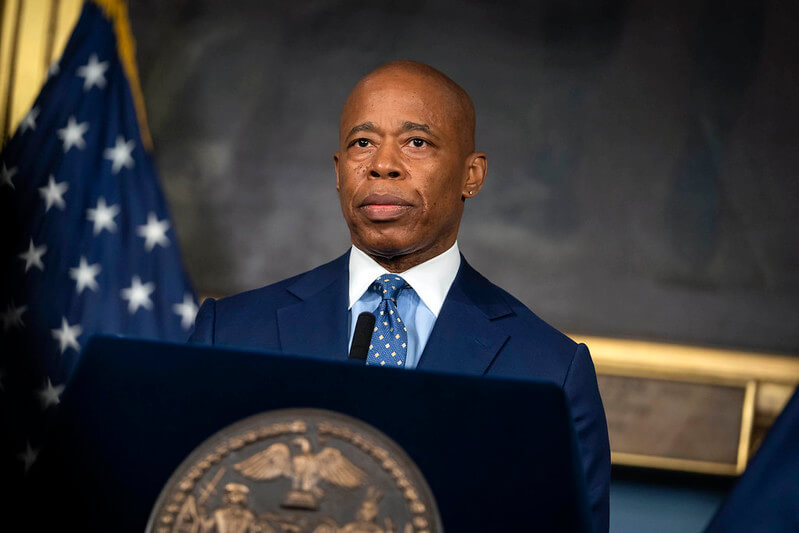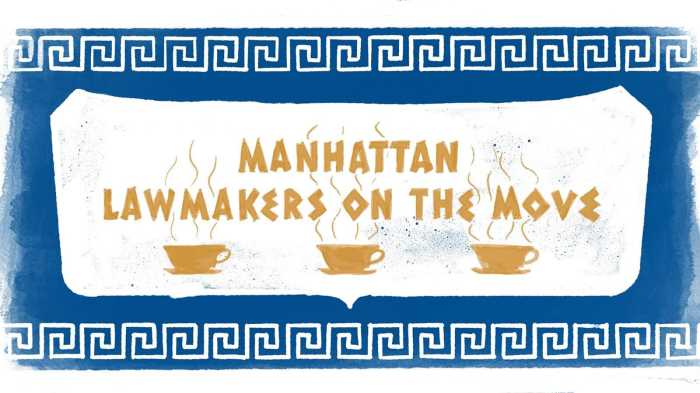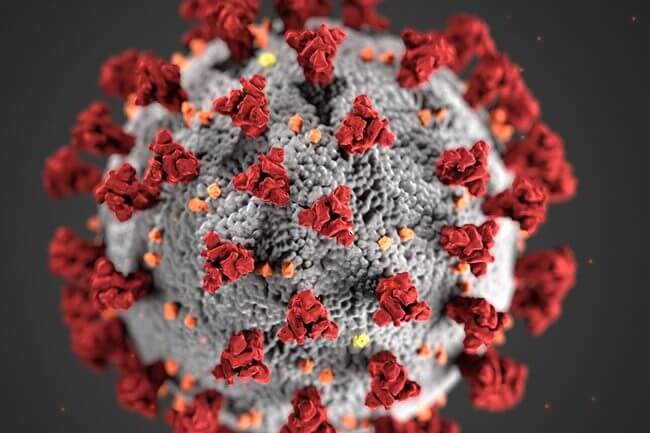In a live streamed address Wednesday, Mayor Eric Adams said Jordan Neely, a Black homeless man who was killed in a fatal chokehold by ex-Marine Daniel Penny last Monday, “did not deserve to die” — something many New Yorkers have called on the mayor to say for the past nine days.
During the speech, Adams expressed sympathy for Neely’s family, while acknowledging that Neely’s severe mental health issues weren’t the reason for his death.
“One thing we can say for sure: Jordan Neely did not deserve to die,” Adams said. “Jordan Neely’s life mattered. He was suffering from severe mental illness that was not the cause of his death. His death is a tragedy that never should have happened. My heart goes out to Jordan’s family who’s suffering great pain and uncertainty about the circumstances of his death. No family should have to suffer a loss like this.”
The mayor, however, did not mention Penny at all during the nearly 15-minute address, nor did he condemn Penny’s actions on the Manhattan subway car where he put Neely in the fatal chokehold last Monday.
Adams instead stuck to what’s become a common refrain for him since Neely was killed: that the NYPD and Manhattan District Attorney’s office are conducting an investigation and that he would not comment before it plays out. He also called for shifting the focus away from the details of how Penny ended up putting Neely in a chokehold and toward addressing long standing issues with the city’s mental health apparatus.
“The circumstances surrounding his death are still being investigated, and while we have no control over that process, one thing we can control is how our city responds to this tragedy,” the mayor said.
When asked by amNewYork Metro why the mayor didn’t mention Penny’s name or condemn his actions, a mayoral spokesperson didn’t address the question and referred a reporter back to the mayor’s speech.
Adams also delivered the streamed speech behind closed doors and didn’t hold an availability with the press immediately following his comments.
Last Monday’s incident on a Manhattan F train was sparked when Neely, who was well-known as a Michael Jackson impersonator, reportedly started screaming at passengers that he was “ready to die” — according to published reports that have cited eyewitnesses and a nearly four-minute video of the encounter. Penny, a white 24-year-old ex-Marine, then put Neely in a chokehold and held him on the ground for several minutes with assistance from at least two other passengers.
Neely later died of his injuries at Lenox Hill Hospital — a death the city’s medical examiner has deemed a homicide.
Nonetheless, Penny was released by police shortly after being taken in for questioning, without being charged. He so far hasn’t been charged with a crime.
City Public Advocate Jumaane Williams, in a statement, said Neely’s death was “not a passive act” and called on Adams to acknowledge it and to support charging Penny with a crime. He also called on others who have been “hesitant” to call for charges.
“Jordan’s death was not a passive or incidental act. He was killed, while pleading for help, and there continues to be hesitance from our leaders to acknowledge aspects of that heartbreaking reality,” Williams said. “I hope they will now support charges which would show there are consequences for killing a Black homeless man in a mental health crisis. A charge is not a conviction, it’s simply the start of the process, and in other cases there has not been such delay in commenting early on.”
Neely’s death and the lack of charges against Penny has caused outrage across the city and led to multiple days of heated protests in the streets and subways, where the NYPD has made brutal arrests.
The mayor spent most of his address discussing the city’s mental health care system, which Neely came into contact with many times in the years leading up to his death, and how it should be reformed to prevent future cases like Neely’s.
One such action that Adams referred to, which he’s already taken, was a directive he issued in November that made clear that the city’s first responders have the authority to involuntarily commit severely mentally ill people they determine can’t meet their “basic needs” to hospitals for psychological evaluations.
“Over the last several years, Jordan interacted with many city agencies, and community based organizations and providers,” he said. “He had various encounters with the criminal justice system and was provided services to help him live safely in the community. Those efforts were not enough. And we must find ways to strengthen our system.”
Going forward, Adams said he’s going to convene five organizations contracted with the city that conduct outreach with the homeless and mentally ill for a City Hall summit next week, where they’ll develop an action plan to “ensure accountability when there are missed opportunities to get those in crisis the help they need.”
Additionally, Adams said he’s bringing together other stakeholders, as well as holding a discussion with faith leaders at City Hall.
He also urged Albany lawmakers to pass a bill — first announced in November along with the involuntary commitment directive — that aims to address what the mayor described as a series of “flaws and gaps” in the state’s Mental Hygiene law that hinder the city’s ability to help the severely mentally ill.
The bill is designed to codify into law, the state’s authority to involuntarily hospitalize those it deems unable to care for their basic needs; make it clear to hospitals individuals shouldn’t be released from psychiatric care just because they’ve calmed down from a mental health episode; and strengthen Kendra’s law — which allows courts to order out-patient treatment for those with severe mental illness.
“We’ll be making a major push on this legislation in the remaining weeks of the session,” the mayor said. “We’ll be building out the coalition and urging action from Albany that can save lives.”
But, in a statement, New York Civil Liberties Union executive director Donna Lieberman slammed the mayor’s address, saying he’s responding to the city’s homelessness and mental health struggles with “force and coercion” in Neely’s name.
“The mayor’s insistence on controlling those in need, instead of taking on the city’s housing crisis or lack of access to health care only fuels stigma against homeless New Yorkers and those living with mental illness,” Liebermans said. “Arrest and forced hospitalization do nothing to address the root drivers of homelessness or the chronic lack of access to mental health care.”
Lieberman said the mayor has linked those who are homeless and suffering from mental health issues with a rise in crime in the city throughout his administration, by pursuing policies like sweeps of homeless encampments and deploying cops into the subways to remove homeless people from the system. The mayor’s approach to this issue, she said, has been “harmful and dangerous.”
“This kind of stigmatization and fearmongering contributes to the victimization of people with disabilities – the same that led to the killing of Jordan Neely,” she said. “The mayor is right that there are more Jordan Neelys in our city. They deserve to get back on their feet, not be controlled, criminalized, or killed.”




































